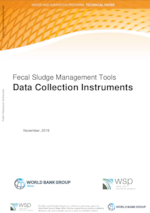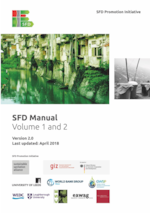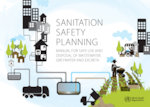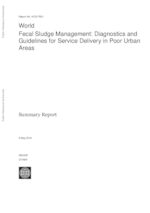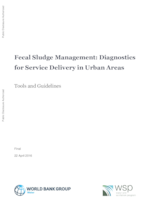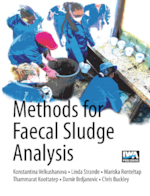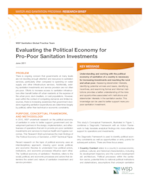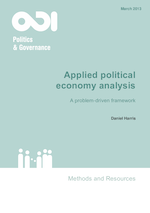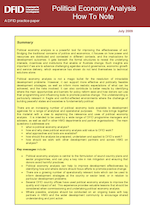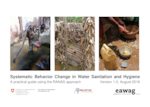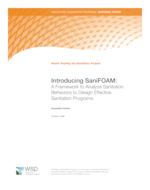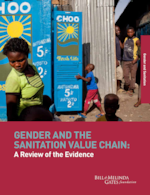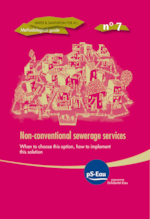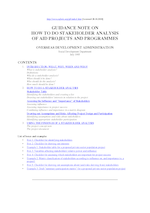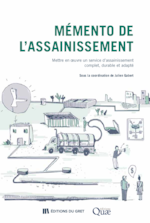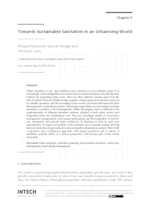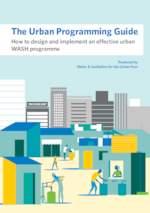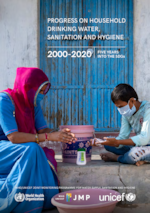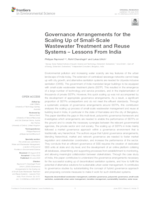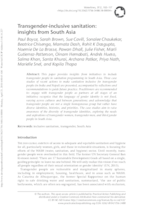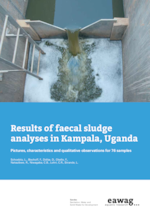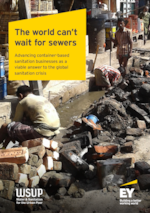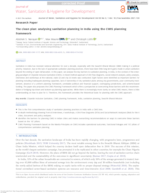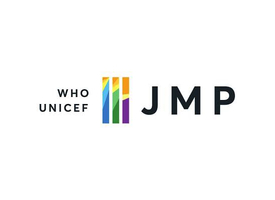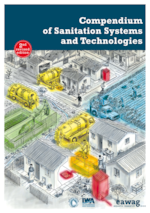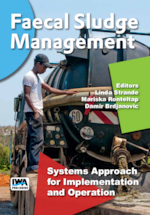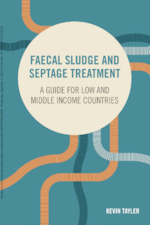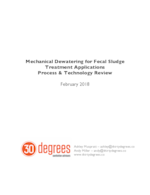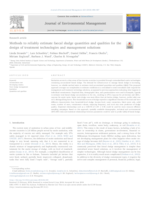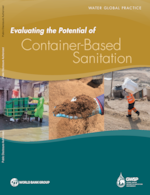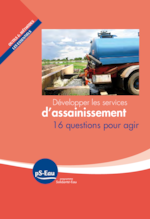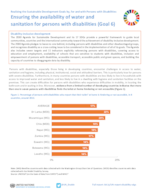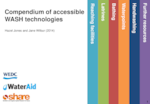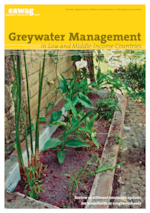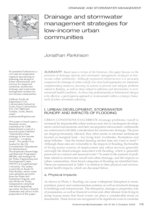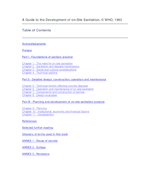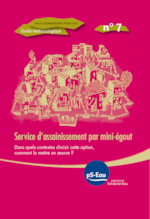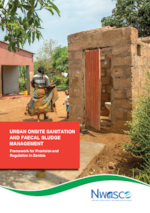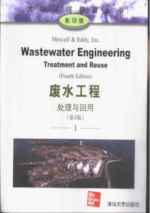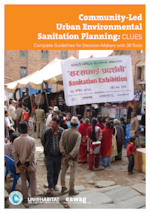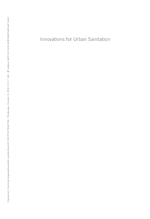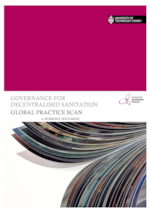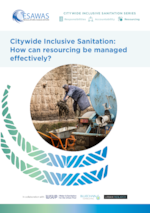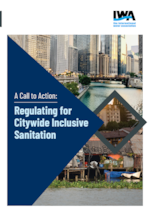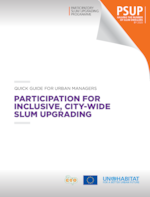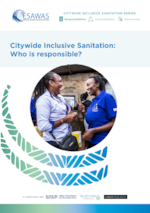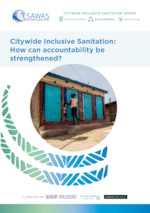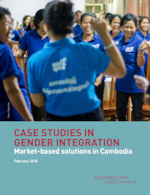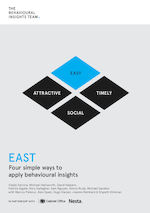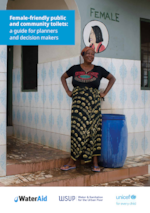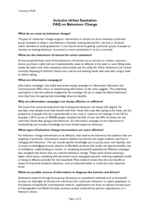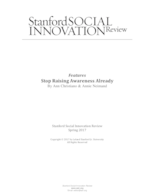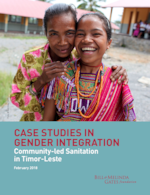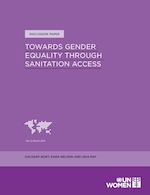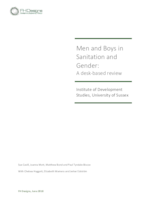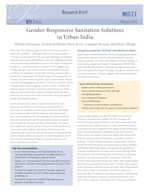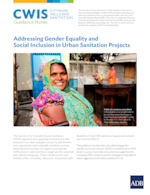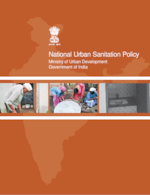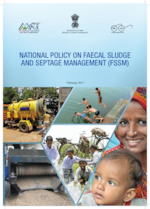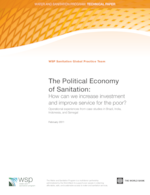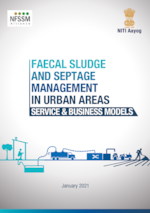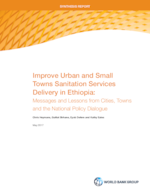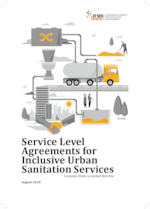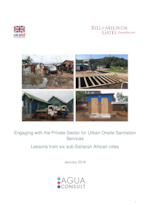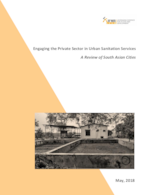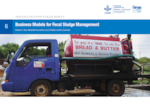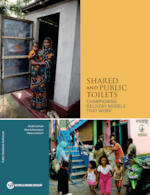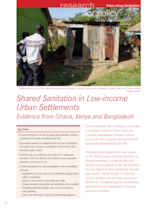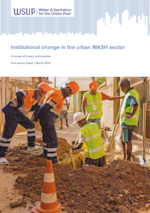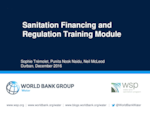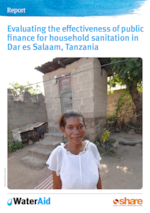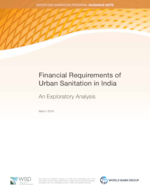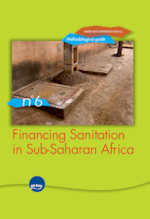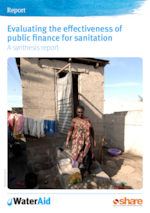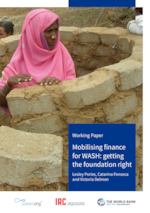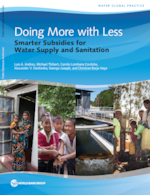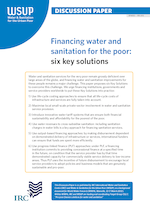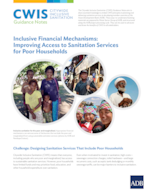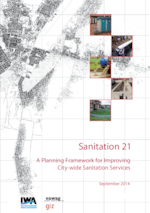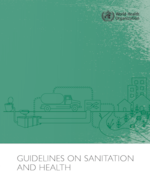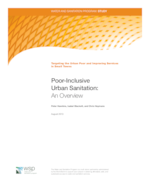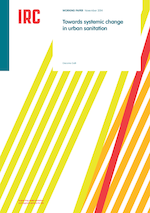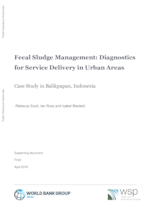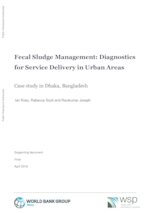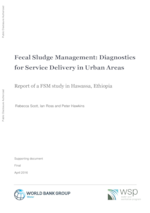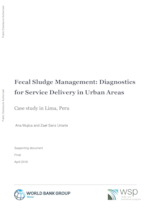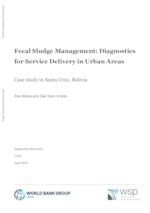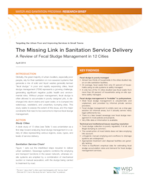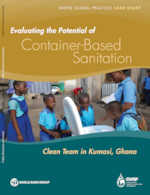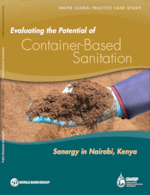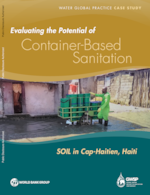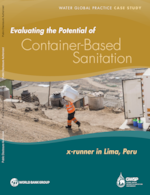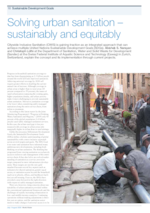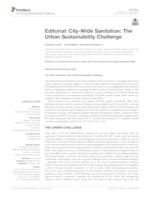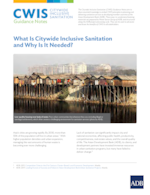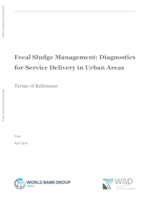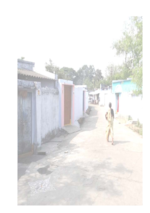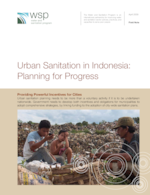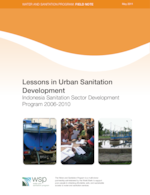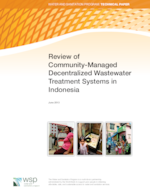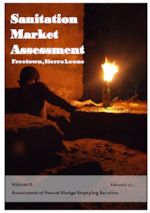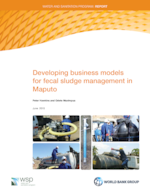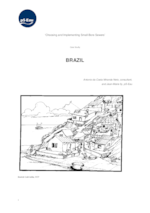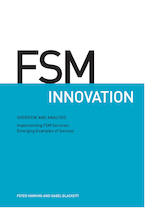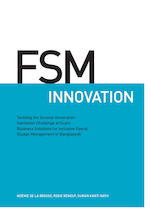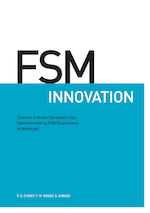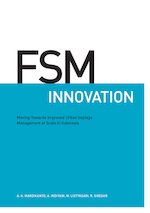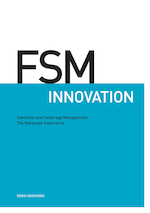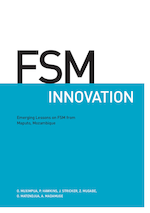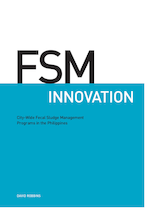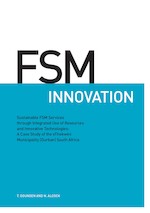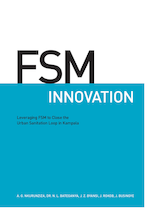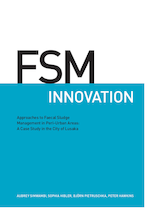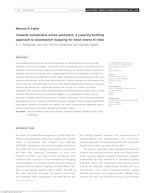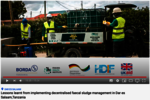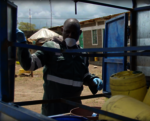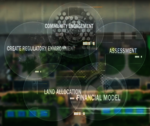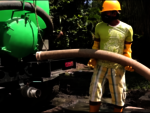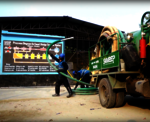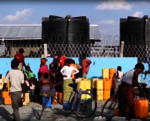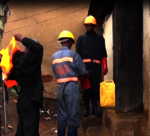Department Sanitation, Water and Solid Waste for Development
ConCad Materials and Resources
The ConCaD Materials and Resources online platform contains the Core Training Material, the complementary Resource Package and links to the ConCaD YouTube Channel. The Core Training Material section includes complete face-to-face packages for free to conduct the Consultant Capacity Development training as conceptualised by Eawag. The complementary comprehensive Resource Package is organised along several thematic sections, grouped in two sections. The YouTube Channel contains video modules that cover all aspects of ConCaD training.
Resource Package
The Resource Package contains selected literature and resources relevant to consultant capacity development for Citywide Inclusive Urban Sanitation. It is organized in different thematic sections as outlined below. Each resource is listed once "by Content" and once "by Type". For each document, there is a short description and, indicated in brackets, to which specific ConCaD face-to-face module(s) ("PP") or which YouTube Video ("YT") the document relates to.
By Content
Diagnostics & Evidence
Zipped Files
Weblinks

2021; Catcomm; [(PP: 1.3)]

Kobo Toolbox [(PP: 1.3)]

World Bank; [(PP: 2.3)]
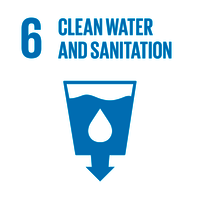
UN; [(YT: 1.3)]
Technical Guidance
-
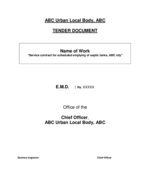 Model Bid Document for Emptying [800 KB]
Model Bid Document for Emptying [800 KB]
-
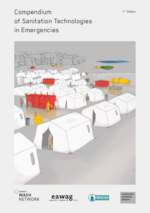 Emersan Compendium [8 MB]
Emersan Compendium [8 MB]
-
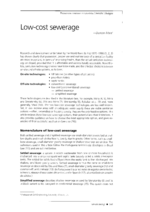 Low-cost sewerage [825 KB]
Low-cost sewerage [825 KB]
Videos
Cochabamba, Bolivia - Citywide Inclusive Sanitation
Part of the World Bank Water video series. In Cochabamba, working with communities and local municipalities, new decentralized wastewater treatment facilities are closing the water and nutrient cycles.
2017: World Bank; [(YT: 3.9)]
Stakeholder Engagement
Behaviour Change & Sanitation Marketing
Inclusiveness, Gender & Equity
Weblinks

2021; Catcomm; [(PP: 1.3)]
Hygiene Promotion in Humanitarian Contexts Using a Systematic Appproach to Behaviour Change
This video takes a closer look on a systematic approach to behavior change using the RANAS approach.
2016; Mosler, H.-J.; [(PP: 2.5)]
Financing
Cross-Topic
By Type
Approaches, Frameworks & Tools
-
 Emersan Compendium [8 MB]
Emersan Compendium [8 MB]
Zipped Files
Weblinks

2021; Catcomm; [(PP: 1.3)]

Kobo Toolbox [(PP: 1.3)]

World Bank; [(PP: 2.3)]
Case Studies
FSM Innovation
Scientific Publications
Videos, Presentation, Webinars & Podcasts
Urban Sanitation Case Studies Videos
Citywide Inclusive Sanitation Experience, Malindi, Kenya
A 7-minute video about the Citywide Inclusive Sanitation in Malindi, Kenya.
2024; IWA; [(YT: 3.1)]
Warangal, India - The Model Sanitation City
A 10-minute video about the changes to the sanitation systems in Warangal, Telangana, India. Includes private sector involvement in public toilets, women-only ‘She’ toilets and other innovations.
2017; Dasra India; [(PP: 3.1)]
Lusaka, Zambia - Sanitation Service through FSM
A 12-minute video outlining FSM services in a large unplanned settlement in Lusaka, provided by small businesses in association with the utility and a community-based water services trust, and using simple non-motorised technology.
2016; EPFL, Eawag, WSUP, WHO; [(PP: 3.1)]
Cochabamba, Bolivia - Citywide Inclusive Sanitation
Part of the World Bank Water video series. In Cochabamba, working with communities and local municipalities, new decentralized wastewater treatment facilities are closing the water and nutrient cycles.
2017: World Bank; [(YT: 3.9)]
Hygiene Promotion in Humanitarian Contexts Using a Systematic Appproach to Behaviour Change
This video takes a closer look on a systematic approach to behavior change using the RANAS approach.
2016; Mosler, H.-J.; [(PP: 2.5)]
Lessons learnt from implementing decentralised faecal sludge management in Dar es Salaam,Tanzania
This documentary presents the key findings of the four-year project entitled “DEWATS for Dar”, which was implemented by BORDA Tanzania and Ifakara Health Institute (IHI) between 2016-2020.
The goal of this project was to improve access to sanitation services in low-income, unplanned areas of Dar es Salaam without connection to the sewerage networks. Within this project, two decentralised faecal sludge treatment plants were constructed, and a team of professional service providers was established, to empty pits and transport sludge to nearby treatment facilities.
2020; BORDA, IHI; [(PP: 3.1)]
Working Towards Citywide Inclusive Sanitation
Sanitation is critical to the well-being of all citizens within a city. Through this video series, sustainable examples of waste management are shown from around the world. Considering the whole service chain, from the toilet to waste treatment and reuse, these examples showcase a number of ecological models that have been successfully implemented. Check out the other videos in this series for more detailed descriptions on these unique systems.
2017; World Bank; [(PP: 1.1)]
Citywide Inclusive Sanitation: Durban, South Africa
This video shows the case study of a citywide inclusive sanitation initiative in Durban, South Africa.
2018; World Bank Water; [(PP: 1.1, 3.1)]
Citywide Inclusive Sanitation: Kenya and Haiti
Solving the sanitation problem in cities requires much more than sewered systems. Container-based approaches are being used to transform waste collection and management in Haiti and Kenya. Through the use of a subscription service model, solar power, microbes, and flies, human waste is being collected and transformed into burnable charcoal, fertilizer, and feed mix. By involving community members in the collection and maintenance process, livelihood creation helps to sustain the community and ensure the sustainability of these ecological models of waste management. 2017; World Bank Water; [(PP: 1.1, 3.1), (YT: 3.8)]
In this module you will learn what are condominial sewers and how they differ from conventional sewer systems. The video will outline what are the advantages of condominial sewers over conventional solutions and under which circumstances are they particularly beneficial. In addition, it will show you what are the implications of condominial sewers for utility company.
2017; World Bank; [(PP: 3.1), (YT : 2.12)]
A Sanitation Businesswoman Fighting the Odds, Gender Matters in Sanitation
Emerging Venkatalakshmi, a resident of Narsapur, is a shining example of a successful businesswoman fighting the odds to implement sustainable sanitation in her hometown. Recognising a business opportunity, she secured money to buy a series of desludging trucks, hired drivers, painted the trucks to make them appealing, and advertised them. She has financed it herself and empowered her family to work with her. Though she met resistance and violence, she continues to work and grow.
2018; Darsa India; [(PP: 1.6, 3.1)]
India's First Faecal Sludge Treatment Plant - Devanahalli
This video showcases the first successful pilot Faecal Sludge Treatment Plant (FSTP) in India in Devanahalli, Karnataka, set up by CDD Society and the Devanahalli Town Municipal Corporation. There are 7,000 towns in India with a population under 1 million. If you are one of these towns, there is a 95% chance you do not have an underground sewerage system. Instead toilets in your town are connected to pits and septic tanks and the faecal sludge collected from this is likely untreated causing pollution. So what can you do? Create a Faecal Sludge Management system for your town with a Faecal Sludge Treatment Plant at its centre that converts faecal sludge into compost for farmers. 2017; CDD society, Dasra India; [(PP: 3.1), (YT: 2.11)]
Warangal - The Model Sanitation City
The Warangal model tells us that to plan for complete sanitation solutions for any city, it is imperative to plan across the sanitation value chain. The model uses deep government engagement, on ground data, private sector involvement and innovative technologies. It also keeps its citizens at the forefront. This is the model sanitation city.
2017; ASCI, Darsa India; [(PP: 2.4, 3.1)]
New Approaches for Urban Sanitation in Sri Lanka
Around 95% of Sri Lankans have access to basic sanitation. Yet, the growing urban population and density pose a challenge of ensuring safe sanitation consistently. The Government is committed to ensure all people using safely managed sanitation services by 2030. This requires new approaches and smart solutions. In recent years, Sri Lanka’s national utility has demonstrated innovative and low-cost models of safe sanitation, through a pilot project supported by the World Bank under the Global Partnership on Output-Based Aid (GPOBA). 2018; World Bank; [(PP: 3.1)]
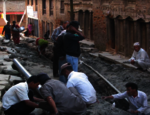
Nala, Nepal - Implementing CLUES
This Video features the implementation of the Community Led Urban Environmental Sanitation Planning (CLUES) approach in the village of Nala in Nepal.
2016; Eawag , EPFL; [(PP: 3.1)]
SWEEP: an Affordable Sanitation Service for Low-Income Customers
This film explores how the public-private partnership works and how improved regulation is helping to create a stronger market for septic tank emptying services. Entrepreneurs operate under the SWEEP brand in Dhaka and Chittagong in partnership with public bodies.
2017; WSUP UK; [(PP: 2.2, 2.4)]
BORDA, Pioneering in Community Sanitation Services for Dar es Salaam’s Urban Communities
A pioneering community latrine emptying and Decentralized Wastewater Treatment Solution (DEWATS) for Dar es Salaam’s un-served urban communities.
2018; BORDA, HDIF Tanzania; [(PP: 3.1)]
Mining Millions from Emptying Latrines, Kampala, Uganda
This video showcases a graduate from Makerere University, Kampala Uganda who left his at a telecom company to create his own latrine emptying business.
2018; New Vision; [(PP: 3.1)]
MOOC – Planning and Design of Sanitation Technologies - Videos
MOOC – Faecal Sludge Management - Videos
Gender and the Sanitation Value Chain
ConCaD YouTube Channel

The ConCaD YouTube Channel covers all aspects of Citywide Inclusive Sanitation as conceptualised for the ConCaD face-to-face training. It is organised in three parts: Part 1 - Introduction & diagnostics, Part 2 - Urban sanitation programming in practice, Part 3 - Urban sanitation systems.
Core Training Material
The Core Training Material contains the complete face-to-face packages developed by Eawag and used during the training workshops. Both courses are organized in three modular blocks and the materials include Powerpoint presentations, individual and group exercises and complementary quizzes. Some presentations are available in two versions with Africa or Asia specific elements. The video resources related to presentations are available following each pdf list. For the country-contextualized materials, please contact the individual Partner Training Institutes that provides the training.
Face-to-face training materials
Part 1 – Using diagnostics and data
-
1.0 ConCaD Introduction. [2 MB]
-
1.3 Data and Evidence. [2 MB]
-
1.6 Gender in Inclusive Sanitation. [151 KB]
-
1.10 The CWIS Bidding Challenge. [1,013 KB]
Part 3 - Urban Sanitation Solutions in Practice
-
3.1 Urban Sanitation Case Studies [149 KB]
-
3.3 Time-Technology Diagram. [31 KB]

